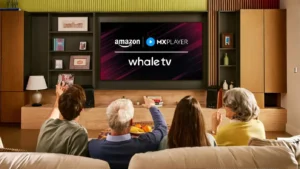In an age where video games are evolving faster than ever—offering immersive worlds, AI companions, and breathtaking graphics—it might come as a surprise that classic card games are thriving on digital platforms. Among them, Freecell has captivated players worldwide, demonstrating that sometimes the simplest games are the most enduring. From challenging strategy to sheer accessibility, Freecell card game remains one of the most beloved digital card games, offering a lesson in the timeless fun of classic games.
The Digital Transition of Card Games
The Shift from Tabletop to Tabletops Everywhere
Card games have a centuries-long history, with Freecell’s origins dating back to the 18th century as an adaptation of the European game “Eight Off.” It wasn’t until the digital age, however, that Freecell and other solitaire-style games exploded in popularity. Starting in the late 1980s, when Freecell was included with Microsoft Windows, millions of computer users found themselves captivated by its blend of strategy and simplicity. Today, the Freecell card game can be accessed at any time from a smartphone or tablet, showing how modern technology has kept such games accessible and relevant.
The Rise of Casual Gaming and Freecell’s Role
As the internet became more mainstream, so did casual gaming—a trend that Freecell card game exemplifies. Unlike games that require intense commitment or long hours, Freecell fits into the pockets of time between daily activities. With rounds lasting just minutes, it’s a game that appeals to both beginners and experienced players. This accessibility aligns with the needs of a fast-paced world where quick, engaging content rules. For many, playing Freecell offers a quick mental break or a way to unwind.
What Makes Freecell Unique?
Strategy Meets Accessibility
One of the most appealing aspects of Freecell is its balance of strategy and accessibility. While the game is easy to pick up, winning consistently requires a keen sense of foresight and planning. Players must use all four open cells to arrange cards in descending order while considering the placement of cards that might be essential for future moves. This strategic element is enough to hook both new players and seasoned gamers, who are drawn to the challenge of solving each game.
Predictable Yet Challenging
Unlike some solitaire games where success can depend on the luck of the draw, Freecell offers a predictable deck each time. This means that every game is theoretically winnable, provided the player can solve the puzzle. It’s a game of pure skill, rewarding those who study patterns, think several moves ahead, and strategize accordingly. For many, this predictability enhances its appeal, as players find satisfaction in developing the skills needed to consistently win.
Freecell and the Mind: A Cognitive Workout
Improving Focus and Problem-Solving
Studies on card games like Freecell suggest that they offer cognitive benefits, particularly in areas of focus, memory, and problem-solving. Freecell requires players to plan several moves ahead, training their minds to concentrate and visualize possible outcomes. In an era where many activities encourage distraction, Freecell’s demand for sustained attention can offer a welcome mental exercise.
Stress Relief and Relaxation
Beyond cognitive benefits, Freecell card game can also provide stress relief. Its straightforward nature allows players to focus on the task at hand, providing a break from daily worries. According to research, even short gameplay sessions can lower stress levels, offering relaxation and a sense of accomplishment. Freecell’s steady, calm gameplay appeals to those looking for an engaging yet low-stakes activity, which is why it remains popular among a wide range of demographics.
The Cultural Impact of Freecell and Digital Card Games
A Game for All Ages
One of Freecell’s most intriguing aspects is its universal appeal. Children learning basic problem-solving skills, adults seeking a quick mental break, and older people keeping their minds sharp all find something rewarding in the game. Digital platforms have made this classic game more accessible to all ages, removing barriers related to learning the rules or finding someone to play with. As such, Freecell has bridged generations, turning what was once a tabletop pastime into a multi-generational favorite.
The Influence of Classic Card Games on Modern Game Design
Freecell and other classic games have influenced modern game design. From puzzle games to complex strategy titles, many of today’s top games share elements of these early card games. Concepts like planning, balancing resources, and managing complexity have become staples in gaming, proving that the core mechanics of classic card games remain relevant. By inspiring generations of gamers and designers, Freecell’s legacy continues, reminding us that even the simplest games can spark new ideas.
Why Freecell is Still Relevant Today
Adapting to New Technologies
Freecell has adapted well to new technologies, including mobile apps, online versions, and even tutorials that help new players learn the game. By keeping up with the times, Freecell maintains its appeal and stays relevant in a competitive digital gaming landscape. Today, players can access free versions of Freecell with customizable features, enhanced graphics, and seamless gameplay, demonstrating the game’s adaptability.
A Case Study in Longevity
Freecell’s enduring appeal speaks to the timelessness of well-designed games. While some games gain popularity and then fade into obscurity, Freecell has maintained a dedicated fanbase for decades. Its simple design and strategic challenge make it one of the few games that can be played and enjoyed in virtually any format, from its early digital form on Windows to the mobile versions available now. Freecell is a testament to how classic games can thrive even in a market dominated by rapid technological change.
Conclusion
In a world where gaming options are vast and complex, Freecell reminds us of the lasting value of simplicity, strategy, and accessibility. The Freecell card game not only entertains but also challenges the mind, offering a rewarding experience for players of all ages. With its unique combination of mental engagement and ease of play, Freecell holds lessons for game designers, players, and anyone who appreciates the art of a well-crafted game.
As digital gaming continues to evolve, Freecell stands as a symbol of the enduring appeal of classic games. It serves as a reminder that in gaming, as in life, sometimes the most enjoyable experiences are also the simplest. Whether you’re an occasional player or a daily devotee, the Freecell card game invites everyone to rediscover the charm of a classic game in the digital age.






